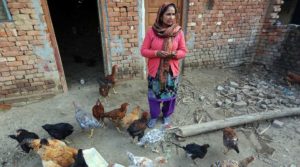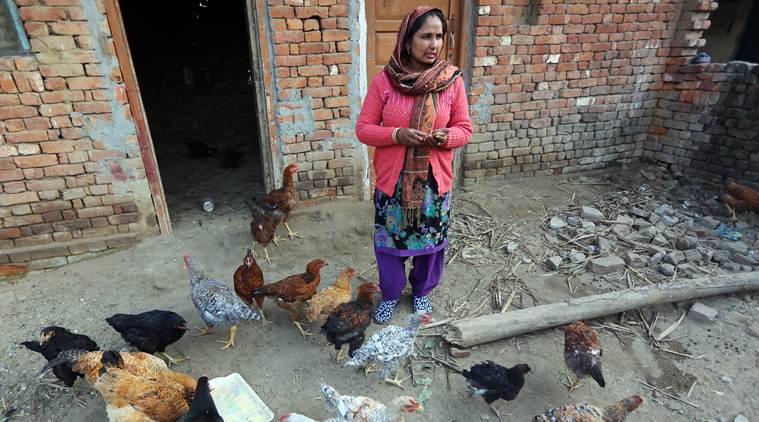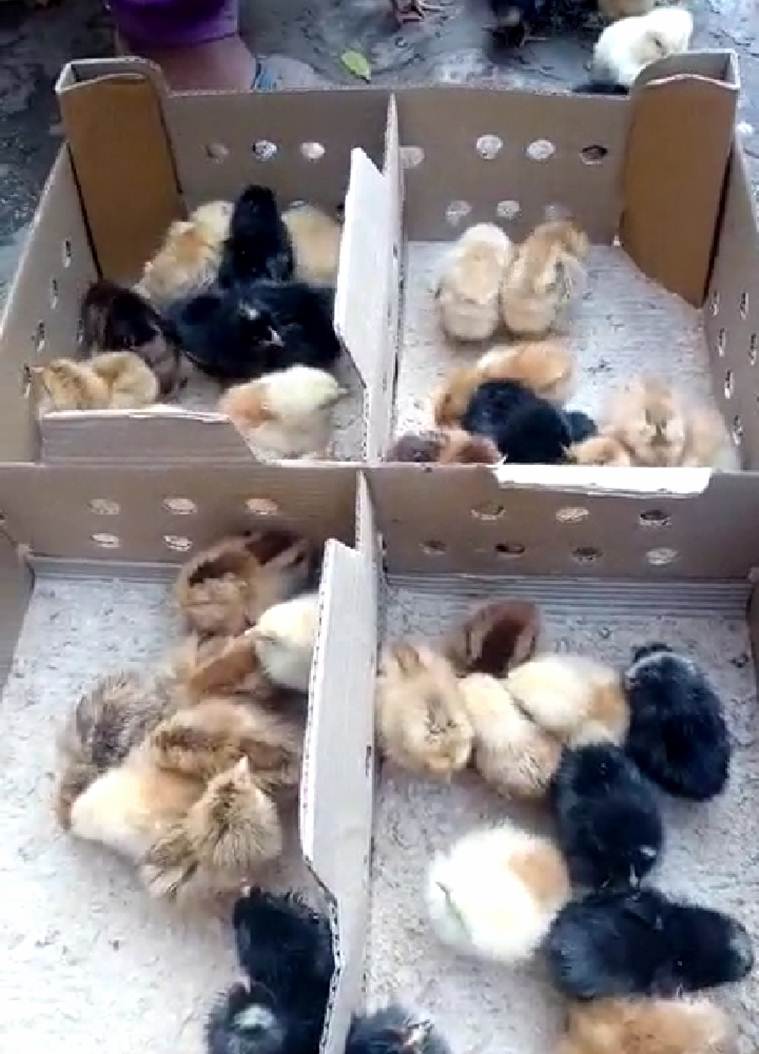
A day in the life of Barita Devi, recipient of 50 chicks under a UP scheme for women

Bavita Devi, a 35-year-old woman who wakes up by 6:30 am to feed her chicks in the village of Tisotra that is located in Uttar Pradesh’s Bijnor district. Within 30 minutes, Bavita starts to feed her 29 chicks, she said “We don’t let them out of their enclosure till the sun is out,”
Bavita says that getting the timing right is really important. On October 5, Bavita was given 50 chicks under a scheme from the government that highlighted women empowerment. But Bavita said: “Most of them die suddenly. Sometimes, even the medicines don’t work, and they just die,”
This scheme was launched in October by The Uttar Pradesh Animal Husbandry Department. Under the scheme, Dalit women would get 50 chicks with a one-time incentive of Rs 450. There are around 150,000 beneficiaries in the state but only 200 got the chicks in Bijnor.
According to a recent survey that was held in Uttar Pradesh and was conducted by the Uttar Pradesh Child Development Department, 15 percent of the in Bijnor children are counted as severely malnourished. The chicks were supposed to help families and children fight malnutrition, the chicks were supposed to provide the family eggs and meat.
But, as we all know chicks do have a high mortality rate, which made beneficiaries like Bavita and other Dalit women struggle against this problem. Neighbour Manjeet Singh and Sapna also lost 21 chicks in just 3 days, they are also beneficiaries of the same scheme.

A 29-year-old said: “Five-six would be dead when we open the cage in the morning. Now, we have only 11 left out of the 50 given to us,” he is a father of two children and is now preparing for an examination that could get him a job in a government facility.
Bavita learned one great trick, she said that chicks love finely chopped onions. She said: “Choojon ko yeh kachcha pyaz pasand hai (The chicks love raw onions). It was by chance that I realised it.”
Back in 2013 and 2014, a similar scheme was launched, the National Rural Livelihood Mission scheme was launched to help all economically deprived women. Rs 2,250 were charged to give 25 chicks after being raised for 1 month by the National Rural Livelihood Mission. Bavita got 25 chicks under the National Rural Livelihood Mission scheme, but only 22 survived.
The District Resource Person for the NRLM Suresh Kumar Gola said that the scheme does not include vaccination. The chicks need four vaccinations, said Gola. He also added that the most common diseases that birds get are Gumboro and Ranikhet, they are both contagious. This explains the sudden death of the chicks.
Suresh Kumar Gola said chicks that are raised in homes can sell for around Rs 900, because of having a higher nutrition value and due to their high demand. The same thing goes with their eggs, he said that usually, they go for around Rs 10 each.
Deputy Commissioner Gyan Singh of NRLM said that they gave basic training to all women that were beneficiaries of the scheme on how to raise the chicks for 6 days. He added: “The scheme’s budget for each woman is Rs 4,000. If we give them one-month-old chicks, we would exceed the budget. The Rs 4,000 budget includes a cage, 50 chicks, and Rs 425 aid for the families,”
Bavita and her family usually cook vegetarian food throughout the week, she said they only have eggs two times a week. In addition to that, she also said that they only cook meat when they have guests.
Bavita agrees that the chicks can help them change that, but she also said that the officials should do a regular checkup or inspection to the chicks just to see if they are doing fine.
Bavita says that around 6 of her chicks has the Ranikhet disease, she sends someone to get medicines for her chicks. The medicine is: “mustard oil, heated and mixed with the ashes I collect from the chulha after making chapatis. I apply it to the chicks when they get skin allergy and they generally get better in a day or two. More of my chicks would have been dead otherwise,” says Bavita smiling.
As the day is almost over, Bavita starts to prepare for dinner, she is making saag, roti, and will be eating some of the rice leftovers.
One thing that Bavita said that touched us the most is that she can’t really think of killing the chicks, Bavita said: “We feel bad every time one dies. We sell them and don’t see them being cut in front of us. Apne bachchon ki tarah paalte hain unko, kha kaise lenge, aap hi batao (We rear them like our children, how will we eat them, you tell me),” she says, turning around to usher the birds back into their enclosure with a ‘hurr, hurr’”